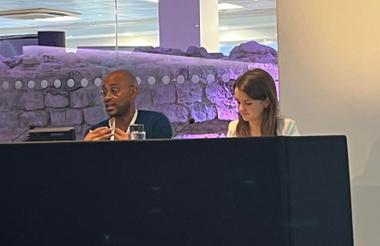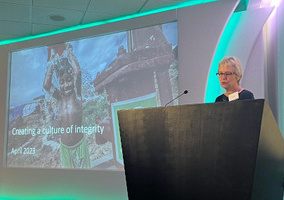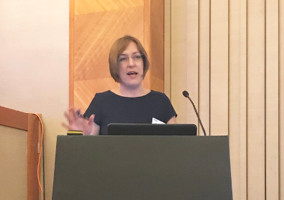Diversity targets can create problems at charities, the executive director of people and culture at Samaritans has said.
Speaking at Civil Society Media’s ESG Imperative last week, Tiger de Souza said culture change at charities was more important than just hiring people from underrepresented groups.
He also said service users with protected characteristics may be less likely to turn to a charity if it does not work on being equitable.
‘I’m anti-diversity targets, I don’t think they work’
Speaking at the event, de Souza said he was “anti” diversity targets. “I don’t think they work”, he said.
“I think if you introduce diversity targets you create two problems. The first problem is people who bring in a couple of underrepresented groups will feel they’ve only been selected because of their identity.
“So they won’t come in with confidence. They won't come in feeling like they're here to deliver. They'll feel like they're ticking a box.
“The other problem is that you drive behaviour. So, managers are really great at coming down on targets, right? But those people they bring into the organisation, they'll be gone quicker than they come in because the culture isn’t right.”
De Souza went on to say that creating a good culture in an organisation is important.
“I think there is a misperception that you can remove individuals or change or tweak systems or processes to eradicate discrimination, bullying, harassment and cultural issues”.
He said these damaging cultures have been built in organisations over decades.
“I think if we're really going to face into our obligations on EDI, we have to think in totality, and holistically and systemically to fundamentally change how we do things.”
‘Empty promises’
“[Charities] are both dependent on the public for funding but also for individuals to take advantage of our service,” de Souza told delegates.
De Souza said a Black man experiencing mental health issues may not turn to a charity that could help him if they do not see it acting on equity, diversity and inclusion.
He said that the potential service user may lack faith in the charities’ commitment to treat them “fairly and equitably” because of what they see “in terms of the demographic makeup of their staff population”.
De Souza said charities that make “empty promises on their websites” on diversity could put people off from contacting them in their “moment of need”.
“Charities, predominantly, exist for the benefit of the public as a whole. And therefore, we need the public to have confidence that when they need us, they can rely on us,” he said.
“And when they’re thinking about where to invest their money in terms of giving back to society, they have faith in doing that.”
Related articles













